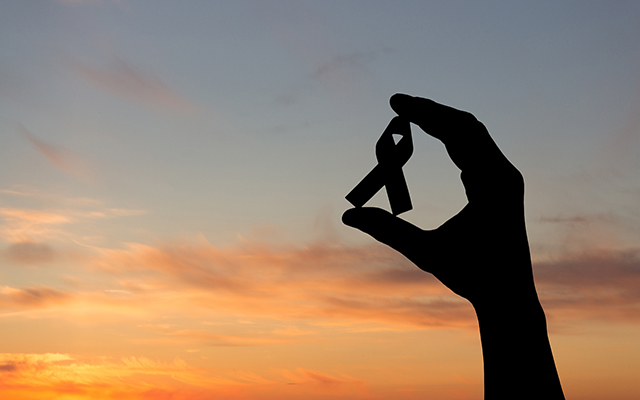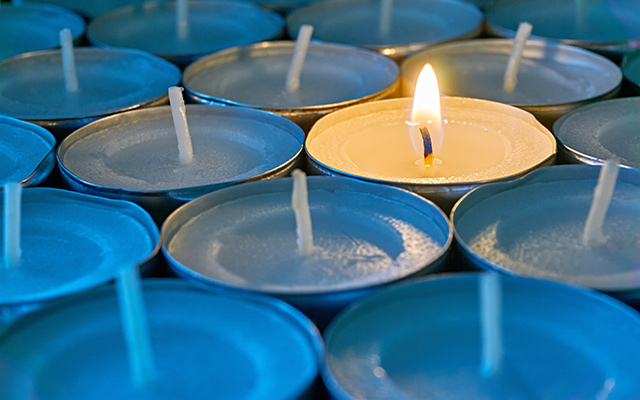When the news arrived last week that my older brother had decided to suspend his cancer treatment and go home to die as peacefully as a hospice program would allow, I found myself traveling back in time.
I recalled sitting next to my dad in November 1979 as he lay comatose on his bed and, sensing the end was near, fleeing the scene. That evening I got the call. Nearly 25 years later, I kneeled beside that same bed watching my mom doze and awake, doze and awake. I headed home as the specter of death began to seep into the room. Early the next morning, I learned she had passed.
In both of those instances, my appearance on the scene was something of a rarity. Though I lived only a half-hour or so south of their suburban homestead, I never figured that my presence was particularly required. Other family members had stepped up to support my folks as the cancer gradually did its work, which allowed me to maintain a safe distance from the suffering. When the end came, though, I felt like I’d missed an opportunity. It wasn’t so much about closure, I now know; it was more about connection.
The night Mom died, I dreamed we were at a train station and, as she prepared to board the train, I asked her if I could join her. She shook her head and told me I had to stay behind. I was awakened at that moment by the phone call.
I’d like to think I’ve learned some things about life and death in the intervening 16 years, but I had no plan to reach out to my ailing brother until a text from his best friend and our golfing pal, The Commissioner, jarred me out of my complacency. He said he was planning to pay The Tin Man a visit soon and wondered if I’d like to join him.
“If he’s OK with visitors, I’d like to see him,” I replied warily. “When are you going?”
“I’m guessing the sooner the better,” he noted. “I’ve been told it may be the last time we can communicate with him. I’d shoot for tomorrow afternoon and hope he’s up to it.”
I agreed and spent the rest of the day silently preparing for what seemed like a pilgrimage to some sacred site. What should I wear? How should I behave? Will I be accepted? What can I learn from this?
We met at noon the next day in the parking lot of the golf course where we’ve shared so many great moments during the past 10 years. It seemed fitting since it was five minutes from The Tin Man’s home, but I also wanted to gauge The Commissioner’s mood and get a sense of what we were about to experience.
We both knew the chemo and radiation had failed to slow the growth of the tumors that had spread throughout his 73-year-old body. And the treatment had left him so weak, confused, and depressed that he finally concluded that he’d rather die in his own bed than continue fighting a losing battle. “It just sucks,” The Commissioner offered as I stood outside the open window of his car. “You wish we could all go in a moment, you know — massive heart attack.”
“Yeah,” I nodded, smiling. “After draining a long birdie putt on 18. Then boom!”
At the house, I was surprised to find The Tin Man swaddled comfortably in a Barcalounger, casually holding court with my little brother, The Wrench. My niece and sister-in-law sat nearby while Nebraska battled Purdue on the TV above the fireplace. I pulled up a chair and slid into the conversation, keen to survey the damage done and discern my role in the repair.
The Tin Man was a wreck, of course, but not as far gone as I had expected. Lucid and alert, he laughed easily, even as the pain clearly lurked just below the surface. “The chemo is moving out of my system,” he croaked. “I feel a lot better.”
His daughter, tapping away on her laptop at the dining room table, jumped into the conversation occasionally to answer a question about the treatment protocol (she’s trained as a nurse) while his wife sat nearby fiddling with her iPad and displaying what struck me as an extraordinary sense of calm. It was as if we’d all just stopped by to shoot the breeze over a couple of beers. The Commissioner was telling tales, The Wrench was waxing poetic over his young granddaughter, and The Tin Man was taking it all in — relieved, perhaps, that he wasn’t the center of attention.
“You guys are going to have to set up a waiting list to fill your foursome,” he chimed in at one point.
“Wait,” I barked. “You mean you’re not going to play next spring?”
He smiled. Shrugged.
“It’ll be a pretty short waiting list,” I predicted.
“And you’re going to need a new statistician,” he added. The Tin Man was the only one of our frail foursome with the mathematical acumen to calculate our handicaps.
This triggered a hilarious diatribe from The Commissioner, complaining about the fact that his handicap never budged all season and alleging some ruthless conspiracy among dark forces committed to deepening the already unfair advantage enjoyed by the three brothers among the foursome, etc., etc., etc. . . .
It was as if we were sitting in the clubhouse after our usual Wednesday round. I felt like we should all be raising a cold one.
An hour had slipped past unnoticed, and The Wrench and I got up to leave. I hugged my sister-in-law and noticed just the faintest glimpse of pain in her eyes. “Thanks,” I whispered. “Can I stop by again next week?”
“He would like that,” she replied.
Outside, The Wrench and I compared notes and agreed to coordinate our next visit. Maybe we’d even reach out to our other two siblings. Jaws set, we embraced.
Driving home, I gradually came to realize that this hadn’t been anything like a pilgrimage after all. It wasn’t about me and my heroic struggle to ascend to some higher level of service. In certain ways, it wasn’t even about The Tin Man. It was more like a family gathering to remind each other that sadness and pain keep us constant company. And that we might just be better able to find our way through it together than apart.




This Post Has 0 Comments